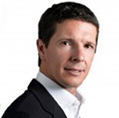Key points
- Resmed (RMD) and Philips Respironics are companies that are engaged in a drawn-out battle for market dominance.
- In August 2014 Resmed launched the advanced AirSense platform.
- Resmed recognised a growing need to capture patient data and made it the centrepiece of its AirSense platform.
The fight for market share can be a long battle. The lucrative reward of market dominance, combined with the threat of obsolescence, spurns companies to engage in years, and even decades, of intense rivalry. But after competing for so long, it can be a small advance by one company that tips the balance and begins a positive feedback loop. Investors that can identify this tipping point may very well share in the spoils of the victor.
The battle
Resmed (RMD) and Philips Respironics are two such companies that are engaged in a drawn-out battle for market dominance. The companies manufacture flow generators and masks to treat sleep apnea, a condition that causes the airway to temporarily close during sleep and is linked to chronic diseases. For decades, Resmed and Respironics have launched devices of comparable quality and functionality, gradually growing their market share over smaller companies that either fell by the wayside or remained in profitable niches.
Yet, in August 2014, Resmed launched the AirSense platform, which left its competitor on the back foot. While Respironics is expected to respond in the coming weeks, I wonder if Resmed’s yearlong head start will be difficult for Respironics to assail.
For context, as pressure on global health systems mount, governments and health funds are less willing to reimburse distributors for medical devices without demonstrable benefit. While flow generators can effectively treat sleep apnea and help prevent chronic disease, patient compliance has typically been poor and difficult for distributors to document.
Resmed recognised this growing need to capture patient data and made it the centrepiece of its AirSense platform. Its new flow generators linked seamlessly via wireless communication with patient monitoring software. Prior to this, memory cards that recorded the sleep data needed to be returned via post to claim reimbursements, which was an inconvenience for the user and an unwanted burden on the distributor. The connectivity also allowed healthcare providers to troubleshoot and remotely change settings on the device, removing the call-out costs borne by the distributors.
The new platform has been very well received by patients and distributors alike. In the three quarters since the AirSense launch, sales of Resmed flow generators in North America grew 25%, 42% and 53%, respectively. Flow generators have lower profit margins than masks, so while earnings have not grown as strongly it may not be long before meaningful benefits are realised at the bottom line.
No competition
You see, the market share Resmed has taken from Respironics may be difficult to recover. New customers generate lucrative recurring earnings by requiring at least one mask replacement every year. These customers are also less willing to change providers as their sleep history is uploaded to Resmed’s systems. A growing customer base not only provides Resmed with greater user insights, it also provides a receptive audience for new platform launches.
Resmed has also the opportunity to demonstrate the value of the Airsense to medical device distributors, and in doing so ingrain its systems into the supply chain. Unless Respironics can demonstrate that its new platform delivers greater cost savings or an improved user experience than the Airsense, there will be little motivation for distributors to switch.
This means that Respironics may have to compete on price in order to win back market share, which is a risky strategy because of the natural price deflation in the industry. As technology improves, manufacturers must launch products at a premium to the dated machines in order to maintain long-term profitability. If Respironics decides (or is forced) to compete aggressively on price, it may be very difficult for the company to recover margins.
Flow generators are complex devices, which typically require five years of research and development, and Resmed would already be working on a new platform with the extra year of insights gained from the AirSense platform. If Resmed can maintain its growth momentum against Respironics’ response, it may enjoy the beginning of a powerful virtuous cycle.
Important: This content has been prepared without taking account of the objectives, financial situation or needs of any particular individual. It does not constitute formal advice. Consider the appropriateness of the information in regards to your circumstances.

